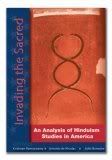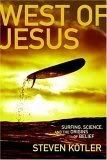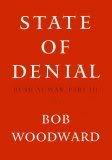‘The boy grew in wisdom and stature’. That’s what the Bible says about the life of Jesus between the the age 13 and 30. While the Church approved Gospels have been silent about this aspect, other people have come up with creative ideas which include various minority positions like he was in India or Glastonbury or he lived with the Essenes. There have been books like The Unknown Life of Jesus and many others.
Now a bunch of film makers are making a movie titled the Aquarian Gospel based on the book The Aquarian Gospel of Jesus the Christ by Levi H. Dowling. According to this book, Jesus wandered as a mystic across India, living in Buddhist monasteries and speaking out against the caste system. The movie, which will be made in the style of 300, will follow Yeshua all way from Middle East to India and will emphasize that Jesus was inspired by Indian spirituality, besides other religions.
While the Gospel says that Jesus came to earth to show the way back to God and all the usual stuff there are some more issues which will not go well with the Church. According to the The Aquarian Gospel of Jesus the Christ, Jesus was conceived by a human father and not a divine one. Also, according to this gospel, the soul is not eternal but undergoes reincarnation, the Hindu way. Eventually all souls will become perfect and end the cycle of reincarnation. Both these contradict the fundamental teachings of the Church. You also have to see from where Levi H. Dowling got this material to know why the whole thing is called bizarre.
If this is a bizarre movie, the only way to take attention away from this would be release something more bizarre. How about if Jesus had a twin brother and he grows up to be a dacoit or software engineer.? That is what the German film maker Robert Sigl is planning to do, but the twin would not be a dacoit or software engineer for that would make the story completely unbelievable. The filming is expected to start as soon as they can translate, Mere pass maa hai into Aramaic.
“The film is about two archaeologists touring India to research about Jesus’ life in India. The story is about Jesus’s evil twin brother who used to practice some different sect,” fieber.film’s producer Mario Stefan narrated the story at film ‘bazaar’ of IFFI organised by National Films Division Corporation (NFDC). The firm, which has produced film like “The Army of Ghosts”, is ready to face the controversy that would erupt on their project. “My aim is not to create controversy but if you deal with religious theme then be prepared to face the controversy,” Stefan said. “The film is a piece of fiction and not based on true events,” he sought to re-clarify. The film will mostly have an Indian cast except two who would be playing the role of archaeologists visiting India. [German filmmaker plans fictional film on Christ’s twin brother ]




